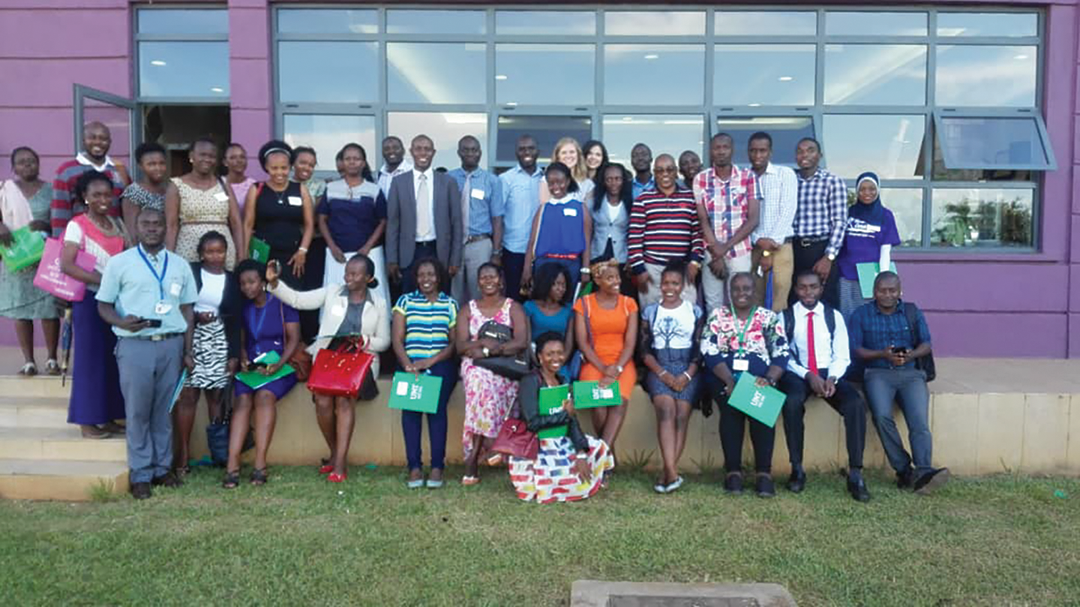
When Fredrick Sembatya returned to his native Uganda in June, he was there for far more than a social visit. Sembatya -- a behavior technician at UNT's Kristin Farmer Autism Center -- spent a week in the capital city of Kampala training parents, teachers, health care professionals and social workers in how to best help children with autism. It was part of a workshop titled "Evidence-Based Practices in Autism Diagnosis, Assessment and Treatment."
"This was a way to change children's lives through other people," says Sembatya, who received his master's in autism from the University of South Wales. "As we showed the attendees these evidence-based practices to help children with autism, you could see that it was an eye-opening experience for them."
The workshop, hosted at the prestigious GEMS Cambridge International School, was sponsored by the Kristin Farmer Autism Center with additional funding provided by UNT International's Global Engagement Grant and the College of Education Dean's Office. It was of crucial importance, Sembatya says, because many in Uganda fail to understand the nuances of working with autistic children, instead simply labeling them as "cursed" or "bewitched."
Using social media as a recruitment tool, the UNT team ultimately enrolled 149 attendees. Kevin Callahan, executive director of the Kristin Farmer Autism Center; Chelsi Anderson, a doctoral student in educational psychology; Molly Callahan, former training coordinator for the center; and Sembatya were presenters.
The workshop was a success, Sembatya says, but "time was not on our side" due to the breadth of content that needed to be covered. According to Callahan, the center is committed to returning to Uganda next year to host a more specific and longer training.
"We conducted a needs assessment to help determine the priority needs in Uganda," he says. "Ultimately, we hope to establish an autism center similar to UNT's in Uganda."